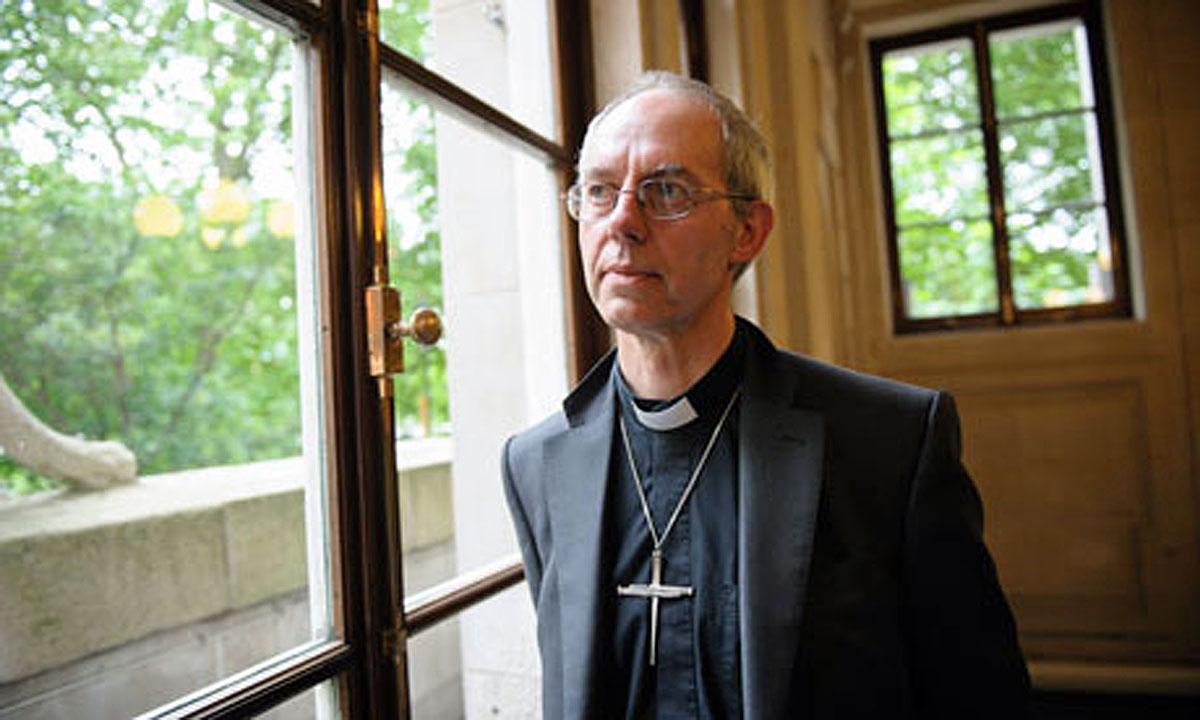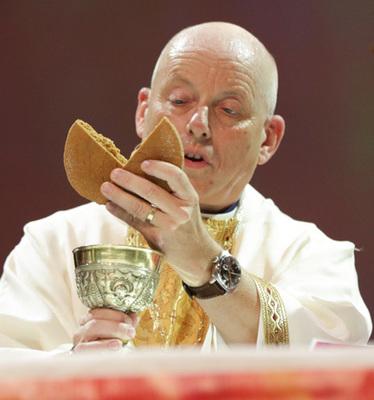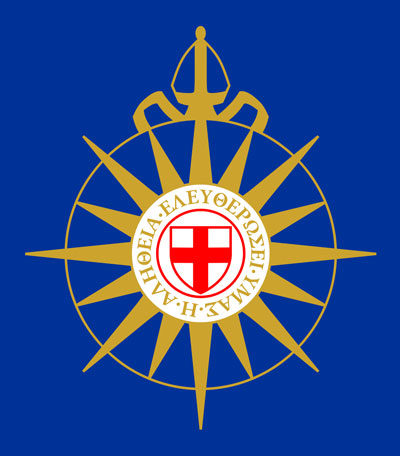‘Poison pill’, ‘bait-and-switch’: That’s the planned Anglican vote on same-sex marriage
Colin Stewart is a 45-year journalism veteran living in Southern…
Anglican bishops who support same-sex marriage are upset that the upcoming Lambeth Conference of bishops of the worldwide Anglican Communion is scheduled to vote on whether to affirm a resolution passed by the 1998 conference that “upholds marriage as between a man and a woman” and rejects homosexuality as “incompatible with Scripture”
After months during which Archbishop Justin Welby described the conference as a time for reconciliation and relationship-building, disappointed church leaders have called the newly announced plan to vote on same-sex marriage “deeply troubling and painful”; a “bait-and-switch” tactic; “a terrible, damaging unforced error”; and ““a deliberate poison pill”.

The document, named “Lambeth Calls”, does not use the words “homosexual” or “homosexuality”, but it asks bishops to affirm the 1998 resolution, which described “homosexual practice as incompatible with Scripture” and opposed “the legitimising or blessing of same sex unions” as well as “ordaining those involved in same gender unions”.
Welby, as the Archbishop of Canterbury, is the spiritual leader of the 85-million-member Anglican Communion. In that role, he strives to resolve disputes among Anglican churches worldwide, all of which are descended from the Church of England.
The context for the current dispute is the communion’s continuing rift over homosexuality. On one side are progressive Anglican churches, including the Episcopal Church in the United States and the Anglican Church of Canada, which welcome openly LGBT people and in many cases ordain them and accept same-sex marriages. On the other side of the rift are conservative Anglican churches such as those of Uganda, Nigeria and Kenya, which vehemently oppose homosexuality, tend to exclude LGBT people from membership and often support laws against homosexual activity.
On July 25, Bishop John Taylor of Los Angeles commented on the background of the upcoming vote and how it could affect the church:
“In the year-long run-up to this summer’s gathering, planners have been cooing in our ears about fellowship and diligent study of 1 Peter [including “have sincere love for each other, love one another deeply, from the heart”], which Archbishop of Canterbury Justin Welby selected as our text. It would be, we were told, a time of gracious reconciliation and relationship-building.

“Only this week does word come that we’ll be issued electronic voting devices and asked, among other things, to vote on (they call it “affirm,” so I guess they’re electronic affirmation devices) Lambeth’s notorious, communion-rivening statement in 1998, known as Lambeth I.10, that biblical marriage can only be between a man and a woman. If we don’t vote yes, we can vote that a question needs more discernment. As of now, we won’t be able to stand up decisively for people’s God-given human rights and vote no. …
“The word is spreading quickly that the Kumbaya Lambeth is actually a bait-and-switch Lambeth, with moderate and progressive Anglicans and Episcopalians about to arrive in Canterbury as credulous props for what is likely to be a majority vote against marriage equity. The news is buried in a 58-page document, ‘Lambeth Calls,’ attributed to ten male lead authors and emailed this week, just in time to be printed and tucked into our luggage. …
“Lambeth doesn’t legislate or set policy. But that won’t matter to a global audience that is likely to read that a majority of Anglican bishops refused to affirm the dignity of every human being. It’s exactly the wrong message to a world in agony. It’s the opposite of the Christian values of healing and reconciliation. It divides, hurts, scapegoats, and denies. It tempts younger people to flee faith and serves no one but the gods of secularization, who are lying in wait for the whole world.
“In the wake of the news, should it come, The Episcopal Church will again have to work hard to remind people that we don’t read the Bible literally, divorced from its historic rootedness — that slowly but surely, across generations, we have moved away from arguing that the word of God countenances slavery, misogyny, homophobia, and transphobia. Slowly but surely, we’ve by and large adopted the view that our God in Christ loves, affirms, and elects all those whom God has made, across all expressions of orientation and identification.”
UPDATE: Michael Curry, the Presiding Bishop of the Episcopal Church, issued a statement today (July 25) about the Episcopal response to the Lambeth Calls:
“While this situation is rapidly changing, I want to assure all Episcopalians that the [Episcopal] House of Bishops will be meeting Wednesday [July 27] in Canterbury to discern its way forward before the Lambeth Conference begins.
“For now, I offer this message of love to all my LGBTQ+ siblings: We have worked hard to become a church where, as the old African slaves used to sing, “There is plenty good room, plenty good room,” for all of God’s children. We are all The Episcopal Church, and we will not compromise who we are, our connections, or our love. We head to this conference with you in our hearts and Jesus’ Way of Love as our guide.”
Other reports on the Lambeth Conference and same-sex marriage include:
- Draft Lambeth Conference ‘call’ threatens to reignite 1998 row over homosexuality (Church Times)
- Fury at inclusion of same sex marriage ban on Lambeth conference agenda (Religion Media Centre)
- After LGBTQ+ resolutions smoothly moved through [the Episcopal Church’s General Convention], Anglicanism’s human sexuality debate returns ahead of Lambeth Conference (Episcopal News Service)
The Archbishop of Canterbury urged bishops attending the Lambeth Conference not to be deterred by their disagreements:

“… As you prepare your hearts and minds for this gathering, I pray that we all reflect on the draft Call on Anglican Identity, which states that Anglicans “belong to a tradition that seeks faithfulness to God in richly diverse cultures, distinct human experiences, and deep disagreements.” That call also states: “The Anglican Communion is a gift from God. Governed by Scripture, affirming the ancient creeds, sacramentally centered, and episcopally led – Anglicans seek to be faithful to God in their agreement and in their disagreements.”
“Without ignoring those things on which we deeply disagree, I pray that we will approach this gathering with an even deeper sense of what unites us: the love of Jesus Christ and his calling to serve God’s world.”
The Archbishop concludes: “Without ignoring those things on which we deeply disagree, I pray that we will approach this gathering with an even deeper sense of what unites us: the love of Jesus Christ and his calling to serve God’s world.”
Resolution 1.10 of the Lambeth Conference of 1998 stated that the conference:
- commends to the Church the subsection report on human sexuality;
- in view of the teaching of Scripture, upholds faithfulness in marriage between a man and a woman in lifelong union, and believes that abstinence is right for those who are not called to marriage;
- recognises that there are among us persons who experience themselves as having a homosexual orientation. Many of these are members of the Church and are seeking the pastoral care, moral direction of the Church, and God’s transforming power for the living of their lives and the ordering of relationships. We commit ourselves to listen to the experience of homosexual persons and we wish to assure them that they are loved by God and that all baptised, believing and faithful persons, regardless of sexual orientation, are full members of the Body of Christ;
- while rejecting homosexual practice as incompatible with Scripture, calls on all our people to minister pastorally and sensitively to all irrespective of sexual orientation and to condemn irrational fear of homosexuals, violence within marriage and any trivialisation and commercialisation of sex;
- cannot advise the legitimising or blessing of same sex unions nor ordaining those involved in same gender unions;
- requests the Primates and the ACC to establish a means of monitoring the work done on the subject of human sexuality in the Communion and to share statements and resources among us;
- notes the significance of the Kuala Lumpur Statement on Human Sexuality and the concerns expressed in resolutions IV.26, V.1, V.10, V.23 and V.35 on the authority of Scripture in matters of marriage and sexuality and asks the Primates and the ACC to include them in their monitoring process.




